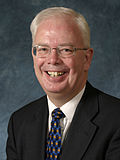This article needs additional citations for verification. (December 2020) |
| |||||||||||||||||||||||||||||||||||||||||||||||||||||||||||||||||||||||||||||||||||||||||||||||||||||
All 129 seats to the Scottish Parliament 65 seats were needed for a majority | |||||||||||||||||||||||||||||||||||||||||||||||||||||||||||||||||||||||||||||||||||||||||||||||||||||
|---|---|---|---|---|---|---|---|---|---|---|---|---|---|---|---|---|---|---|---|---|---|---|---|---|---|---|---|---|---|---|---|---|---|---|---|---|---|---|---|---|---|---|---|---|---|---|---|---|---|---|---|---|---|---|---|---|---|---|---|---|---|---|---|---|---|---|---|---|---|---|---|---|---|---|---|---|---|---|---|---|---|---|---|---|---|---|---|---|---|---|---|---|---|---|---|---|---|---|---|---|---|
| Turnout | Constituency - 49.7% Regional - 49.7% | ||||||||||||||||||||||||||||||||||||||||||||||||||||||||||||||||||||||||||||||||||||||||||||||||||||
| |||||||||||||||||||||||||||||||||||||||||||||||||||||||||||||||||||||||||||||||||||||||||||||||||||||
 The map shows the election results in single-member constituencies. The additional member MSPs in the 8 regions are shown around the map. | |||||||||||||||||||||||||||||||||||||||||||||||||||||||||||||||||||||||||||||||||||||||||||||||||||||
| |||||||||||||||||||||||||||||||||||||||||||||||||||||||||||||||||||||||||||||||||||||||||||||||||||||
The 2003 Scottish Parliament election was the second election of members to the Scottish Parliament. It was held on 1 May 2003 and it brought no change in terms of control of the Scottish Executive. Jack McConnell, the Labour Party MSP, remained in office as First Minister for a second term and the Executive continued as a Labour and Liberal Democrat coalition. As of 2023, it remains the last Scottish Parliament election victory for the Scottish Labour Party, and the last time the Scottish National Party lost a Holyrood election.
The results also showed rises in support for smaller parties, including the Scottish Green Party and the Scottish Socialist Party (SSP) and declines in support for the Labour Party and the Scottish National Party (SNP). The Conservative and Unionist Party and the Scottish Liberal Democrats each polled almost exactly the same percentage of the vote as they had in the 1999 election, with each holding the same number of seats as before.
Three independent MSPs were elected: Dennis Canavan, Margo MacDonald and Jean Turner. John Swinburne, leader of the Scottish Senior Citizens Unity Party, was also elected. This led to talk of a "rainbow" Parliament, but the arithmetic meant that the coalition of Labour and Scottish Liberal Democrats could continue in office, which they did until the 2007 election.
The decline in support for the SNP was viewed by some as a rejection of the case for Scottish independence. Others argued against this, pointing out that the number of MSPs in favour of independence actually rose because most of the minor parties such as the SSP share this position with the SNP.
| This article is part of a series within the Politics of the United Kingdom on the |
| Politics of Scotland |
|---|
 |





